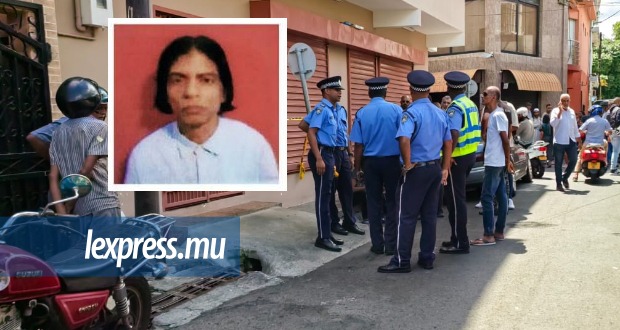Publicité
Unreasonable arrests and detentions
Par
Partager cet article
Unreasonable arrests and detentions

Two recent cases, one involving Mr. Roshi Bhadain and one involving Mr. Narain Jasodanand, a journalist, bring our mind back to the heydays when in 2014, arrests were the norm and many former ministers and those close to them were arrested on mere unverified allegations or on no evidence at all. They were provisionally charged with any offence that the police felt could fit the circumstances under which the persons were arrested. And obviously, these persons had to go through the humiliation of detention before being released on bail.
Following these arrests and detention, an unprecedented event in our country, people started asking questions about provisional charges and the length of time people spent in detention. Even those who were celebrating the arrest of former ministers started having apprehensions about the police methods.
People were so obsessed with provisional charges and detentions that they overlooked an important fundamental right which is the right of freedom guaranteed by section 5(1) of the constitution, which is the supreme law of the land. That section provides that “No person shall be deprived of his personal liberty save as may be authorised by law”. The circumstances under which the individual may be deprived of his liberty are set out in the constitution. One of the legal authorisations is embodied in section 5(1) (e) and a person may be deprived of his liberty upon reasonable suspicion of his having committed, or being about to commit, a criminal offence.
The framers of our constitution purposely used the words reasonable suspicion. This was no doubt done to prevent any abusive use of the power of arrest. Unfortunately, recent events have shown that the framers of the constitution mistakenly held the belief that those responsible for depriving citizens of their liberty would act reasonably. What many police officers seem to ignore or deliberately overlook is the all-important words ‘reasonable suspicion’. These words should be given their full meaning. The police should not believe that these words appear in our constitution as mere cosmetics or embellishment.
As far back as 1989, the supreme court explained the meaning of these words as follows: “…. the basis of the involvement of the suspect must reveal more than a mere hunch on the part of the police, and this whether the arresting officer of his own volition harbours suspicion towards the suspect or whether it is provoked by a witness or an informant. Were it otherwise, any citizen of this country might run the risk of falling a prey to blackmailers or those who can be made to level charges against anybody according to their whims or caprices. […] A police officer effecting an arrest must take into consideration the totality of the circumstances including the explanations of the suspect and the motive of the declarant. We feel that whatever suspicion the police may harbour against the suspect should be weighed against any factors which tell in favour of the suspect. A total neglect of the explanations that the suspect may have to offer may well lead to the conclusion that the suspicion is not reasonable”.
We know the end results of the arrests. Unfortunately, by proceeding to these arrests, the police overlooked the basic tenets of liberty; the circumstances under which a person can be deprived of his liberty; the basic rules that would justify an arrest. In spite of the fate of the cases, the police have not changed their attitude and mode of operating when allegations, at times farfetched and simply wild, are made.
In 1994, the Supreme Court observed that “having regard to certain constitutional and legal provisions, it has been, and is, the constant practice, when bringing a person suspected of a serious offence before a magistrate soon after his arrest, to do so by exhibiting an information which is marked ‘Provisional’, and to ask that he be remanded in custody, or admitted to bail, pending the completion of the enquiry. The person charged will then periodically come up before the magistrate, to be further remanded or to have the bail enlarged”. Though primarily a provisional charge is a means of enabling the courts to exercise their supervisory jurisdiction over the power of the police to arrest an individual, initially at the police level, it is a means of justifying any arrest.
Doubtless any person may face substantial freedom restriction in the context of our criminal justice system. But this power must be sparingly used and the courts must be ever so vigilant to check this power. In so far as the supervisory power of the courts is concerned, there appears to be two strands of thought. At one end of the spectrum, it would appear that some magistrates would just endorse the decision of the police without any enquiry. At the other end, some magistrates would question the propriety of the arrest and act accordingly.
Our law relating to the freedom of the individual and the restriction on his liberty should not be interpreted in such a way that arrest and detention become the rule and freedom the exception. In other words, an arrest must not be arbitrary. Arbitrariness may arise where there has been an element of bad faith or deception on the part of the authorities. The question may be asked whether, in all the arrests effected and where people were apparently wrongly deprived of their freedom, the police properly directed their minds to the reasonable suspicion factor as explained by the Supreme Court.
There is one section of the Criminal Code that is often overlooked by the police and citizens of this country. It is section 77 and under that section, any arbitrary interference with the individual liberty or civic rights of an individual is an offence and is punishable by imprisonment or a fine. Reference was made to that section in relation to preventing a person from leaving the country in a case decided in 1988. The court had this to say: “We must bear in mind that when somebody is being prevented from leaving the country, it is his freedom of movement which is being infringed upon. As long as it can be shown that the restriction is permissible under section 15 of the constitution, there will be nothing wrong in limiting that freedom”. The same applies to depriving somebody of his liberty if that deprivation is not justified according to constitutional norms.
Publicité
Les plus récents






